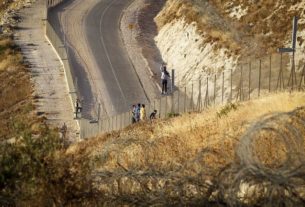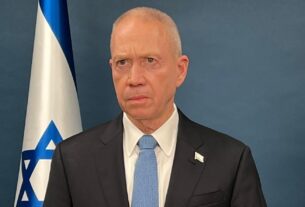((JEWISH REVIEW)) — Israeli settlers torched cars and crops in the West Bank following a Palestinian terror attack, the latest conflagration in what has been a violent year in the territory.
The riot, in which dozens of Palestinians were wounded, followed a shooting earlier on Tuesday by Palestinian gunmen in the Israeli settlement of Eli that killed four people, including two teenagers. That shooting came one day after an Israeli military raid in the Palestinian West Bank city of Jenin that killed six Palestinians, including one teen, and wounded more than 90. Palestinian militants wounded eight Israeli soldiers in the fighting on Monday.
The riot on Tuesday night was a reprise of a similar incident in February, when Israeli settlers rioted in the Palestinian village of Huwara following a terror attack there that killed two Israeli brothers. Following that incident, settler leaders including Bezalel Smotrich, the far-right finance minister, publicly suggested wiping out the village, though Smotrich later said he had been misunderstood.
The Israel Defense Forces feared retaliatory violence on Tuesday night and warned settlers not to “take the law into their own hands,” according to the Israeli publication Ynet. But that admonition appeared not to deter the rioters. As in February, according to reports in Israeli media, they torched at least one store as well as cars and agricultural fields, and threw rocks at Palestinians. The activity took place in multiple villages near Nablus, including Huwara, according to local media reports. Three Israelis were arrested for arson, and an Israeli soldier was seen firing in the air in an attempt to quell the riots.
Since the beginning of the year, more than 100 West Bank Palestinians have been killed in Israeli military raids and more than 20 Israelis have been killed in Palestinian terror attacks.
Violent incidents targeting Palestinians have risen sharply in recent years, according to Israeli government data. After the February riot, which a top military commander joined others in calling a “pogrom,” some settler leaders remained silent or explicitly said they were unapologetic.




